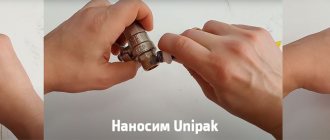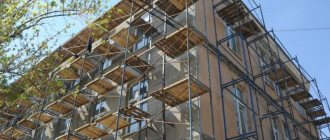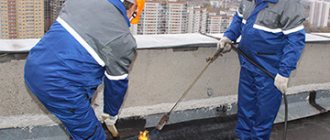Contributions to the capital repair fund have recently been added to the usual utility bills paid by apartment owners. Some confusion in concepts leads to the fact that some residents consider these expenses to be unnecessary and avoid transferring monthly payments to the Federal Fund of the Russian Federation. This material is detailed instructions on how not to pay for major repairs and not run into fines.
What work is included in the list of regional overhaul programs:
- repair of common premises and equipment - basements, attics, roofs, elevators;
- renovation of facades;
- foundation restoration;
- reconstruction of utility systems - sewerage, water supply, heating and lighting.
The minimum payment amount is calculated based on the norm for 1 sq.m. housing and is determined by local legislation. According to the homeowners, it can be increased (if they wish to speed up the collection of the necessary funds). Residents who ignore their obligation to pay contributions to the FKR risk eventually receiving a court notice to pay the debt and penalties accrued on it.
The Housing Code identifies several categories of housing, the owners of which are exempt from this additional burden:
- houses that are municipally owned - the responsibility for carrying out major repairs in this situation falls on the municipal owner;
- dilapidated houses - even if the residents paid contributions to the FKR, from the moment the act on the unsuitability of the building for habitation is drawn up, they are released from this obligation, and the funds they contributed must be returned;
- houses, the land under which is subject to seizure for municipal needs.
Do residents of new buildings ? Legislation allows new residents not to contribute to the FCR for a certain period of time. The exact period is determined by local authorities - as a rule, it does not exceed five years. However, the opposite is not prohibited: members of the HOA can voluntarily accumulate funds for future repairs in their special account with the regional operator.
For those who want to know how to legally avoid paying for major repairs, the instructions in the next section will help determine whether you are entitled to a benefit.
What is included in current renovation work?
Routine repairs ensure that the property is maintained in proper operating condition. Within its framework, defects arising due to use or downtime are eliminated, and the functional and aesthetic qualities of the premises are improved. Activities of this level cannot include a complete replacement of the engineering equipment of the building or affect the supporting structures of the building.
Reference! if necessary, during ongoing repairs, limited restoration of individual parts of the structure is allowed - in an amount not exceeding 20% of the total volume of non-residential premises structures.
In accordance with Appendix No. 7 to Resolution of the State Construction Committee of the Russian Federation No. 170 dated September 27, 2003, the list of work carried out as part of routine repairs may include :
- eliminating damage and strengthening foundations;
- sealing and insulating wall joints and seams, sealing cracks, painting and repairing facades, restoring architectural elements, replacing wood wall cladding;
- replacement or restoration of elements of windows, doors, balconies, stairs, entrance canopies;
- repair of floors, replacement of floor and ceiling coverings, renewal of wall decoration;
- installation and replacement of internal communications elements and restoration of their functionality (sewage, water supply, electricity and gas supply);
- restoration of the functionality of the ventilation system and garbage chute.
In practice, routine repairs of non-residential premises, as a rule, include painting or pasting walls, patching floors, restoring doors and windows, eliminating communication defects (leaks, power failures, etc.), replacing consumables (for example, lighting fixtures).
Who has the right not to pay to the FKR
Some categories of citizens have benefits and subsidies for utility bills. Contributions to the Fund for capital repairs were no exception. Regional authorities have the right to independently determine the list of those persons who are exempt from them in whole or in part:
- Non-working pensioners. The main condition is living in your own home alone, or with a fellow pensioner . At the same time, for those who have reached the age of 70, a benefit of 50% is provided, and for those who have crossed the 80-year mark - 100%.
- Disabled people of groups 1 and 2, parents of disabled children. These categories of citizens have the right to reduce their contribution to the FKR by half. All conditions must be clarified with local authorities. This benefit applies to families or citizens whose income is limited to the subsistence level or minimum wage.
- WWII participants, labor veterans, blockade survivors. The application of the benefit may also depend on income.
- Large, low-income families, single mothers. The conditions for receiving benefits and the existing restrictions must be clarified with the social protection authorities.
Important! In order to exercise your rights and not pay contributions to the FKR, you must submit an application to the regional operator and the local administration, since this benefit is of a declarative nature. In addition, in some regions, even all citizens are required to fully pay receipts from the Federal Fund of the Russian Federation, and the amount transferred by beneficiaries comes to their personal bank account in the form of a special subsidy.
Is it possible not to pay for major repairs without the above reasons? No, categories of citizens not included in the list of beneficiaries cannot legally refuse contributions for major repairs. Trying to save money will ultimately lead to additional costs for penalties and fines.
According to Appendix 9 of VSN 58-88:
APPENDIX 9 Recommended
List of additional work performed during major repairs of buildings and facilities
1. Inspection of buildings (including a comprehensive survey of the housing stock) and preparation of design estimates (regardless of the period of repair work).
2. Redevelopment of apartments that does not cause a change in the main technical and economic indicators of the building, an increase in the quantity and quality of services, equipment in apartments, kitchens and sanitary facilities; expansion of living space due to utility rooms; improvement of insolation of residential premises; elimination of dark kitchens and entrances to apartments through kitchens with the installation, if necessary, of built-in or attached premises for staircases, sanitary facilities or kitchens, as well as balconies, loggias and bay windows; replacement of stove heating with central heating with the installation of boiler rooms, heat pipelines and heating points; refurbishment of furnaces to burn gas or coal; equipment with cold and hot water supply, sewerage, gas supply systems with connection to existing main networks at a distance from the input to the connection point to the mains up to 150 mm; installation of gas ducts, water pumps, boiler rooms; installation of household electric stoves instead of gas stoves or kitchen fires; installation of elevators, garbage chutes, pneumatic garbage removal systems in houses with an upper floor landing level of 14 m and above; transfer of the existing power supply network to higher voltage; installation of television and radio antennas for collective use, connection to telephone and radio broadcast networks; installation of intercoms, electric locks; installation of automatic fire protection and smoke removal systems; automation and dispatching of heating boiler houses, heating networks, heating points and engineering equipment of residential buildings; improvement of courtyard areas (paving, asphalting, landscaping, installation of fences, wood sheds); equipment for children's, sports (except stadiums) and utility areas; dismantling of emergency houses; changing the roof structure; equipment of attic premises of residential and non-residential buildings for use.
3. Replacement of existing and installation of new technological equipment in buildings for communal and socio-cultural purposes.
4. Insulation and noise protection of buildings.
5. Replacement of worn-out elements of intra-block engineering networks.
6. Repair of built-in premises in buildings.
7. Examination of design and estimate documentation.
8. Design supervision of design organizations.
9. Technical supervision.
10. Carrying out repair and restoration work on monuments under state protection.
Other ways to save legally
However, it is quite possible to reduce the current costs of payments to the Federal Credit Fund. If the residents of the house are part of a HOA or join an initiative group, they can:
- conclude an agreement to place advertising banners on the facades of the house, rent out part of the common areas of the house to third-party organizations - the funds received can be used to pay contributions to the FKR, provided that they are accumulated in a special account;
- organize the necessary repairs on your own - with the involvement of a contractor. In this case, an amount equivalent to that spent will not have to be contributed to the FCR, provided that the work performed is included in the long-term plan. In this case, it is necessary to coordinate the repair with the regional operator;
- if there is half the minimum amount in the account according to the local standard approved by the authorities, payments for major repairs can be suspended.
Individuals renting out apartments under a rental agreement can reduce their costs for contributions to the FKR by agreeing on their payment with the tenant. However, you need to understand that such a clause cannot officially appear in the terms of the transaction, since the owner of the property is obliged to pay the fees.
Features of overhaul of non-residential properties
Such work is carried out by the property owner. Therefore, if you are only renting a premises, the owner of the property must reimburse you for the price. This is a significant difference from current and cosmetic repairs.
Of course, such work is also more labor-intensive, complex and time-consuming. However, they are necessary to maintain the functionality of the object.
In addition, the features of the work are related to the purpose of the premises being repaired. For example, warehouses and workshops require the most reliable building structures that can withstand physical loads on all surfaces; At many sites where electrical equipment operates, serious restoration of wiring is required to ensure its reliability.
Frequently asked questions from owners
- Will major repairs be carried out if the previously transferred funds to the FKR account are not enough? Yes, the work included in the plan will be completed even if there is insufficient funding from the owners. For their implementation, funds accumulated by the Federal Credit Fund in a consolidated account and bank credit lines are attracted. This will not change the amount of residents' contributions; repairs will be carried out on credit.
- Will the amounts spent by residents on general building repairs be counted if they were not included in the regional program? Partial or full offset of such expenses is possible only if they are included in the plan of the regional operator, or if there is a proven need for them to be carried out with adjustments to the program.
- Do I need to pay for major repairs, and what consequences may arise if contributions are not transferred to the Fund? If a debt arises for a period of more than 6 months, the regional operator has the right to recover funds from the debtor through the court. The consequences will depend on the size of the delay, the primacy of the violation and other factors.
- Since payments for major repairs are equated by law to payments for utility services, the conditions for claiming them are similar. The court can not only issue a ruling on debt compensation and penalties, but also seize the debtor’s property or temporarily restrict his travel outside the Russian Federation.
- The HOA did not enter into a separate agreement with the regional operator. Does this mean that there is no need to pay contributions to the FKR? No, that doesn't mean it. All homeowners of apartment buildings are required to pay contributions for major repairs.
Text: Svetlana Kuryleva










